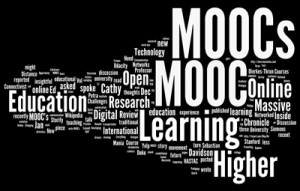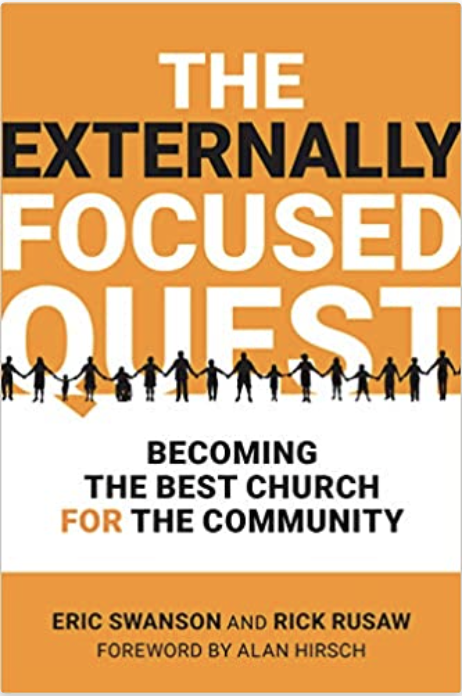Understanding MOOCs and online discipleship
 A MOOC is a Massive Open Online Course aimed at large-scale participation and open access via the Web. MOOCs are a recent development in the area of distance education, and a progression of the kind of open education ideas that are becoming more prevalent today. As churches seek to teach, train disciple others over distance, or in a non-synchronic environment its helpful to understand what’s happening in the MOOC ecosystem. To watch a short animation on MOOCs click here.
A MOOC is a Massive Open Online Course aimed at large-scale participation and open access via the Web. MOOCs are a recent development in the area of distance education, and a progression of the kind of open education ideas that are becoming more prevalent today. As churches seek to teach, train disciple others over distance, or in a non-synchronic environment its helpful to understand what’s happening in the MOOC ecosystem. To watch a short animation on MOOCs click here.
Learning Management Systems and MOOCs
A learning management system (LMS) is a software application for the administration, documentation, tracking, reporting and delivery of education courses or training programs. Where available, I have included a brief video link and feature list link for each site. Below are the most popular LMS sites:
- Moodle (abbreviation for Modular Object-Oriented Dynamic Learning Environment) Moodle is a Learning Management System that provides free web application that educators can use to create effective online learning sites. As of October 2012 it had a user base of 70,793 registered and verified sites, serving 63,204,814 users in 6.7+ million courses with 1.2+ million teachers. Khan Academy uses this LMS. To watch a brief video on Moodle click here. For Moodle feature list, click here.
- Instructure: “Instructure Canvas offers an open source and cloud-native system that is accessible to all students and educators, easy to use (avoids Flash) and mobile, while offering developers a set of APIs and scalable server capacity. Since then, Instructure has raised $9 million and has seen its LMS adopted by 300 universities, colleges and school districts, serving over 4.5 million people (thanks to a recent partnership with Cisco). To watch a brief video on Instructure Canvas, click here. They also have a nice graphic that compares the features of Instructure Canvas against the features of their main competitors and of course Canvas comes out on top. We should learn more about these folks. Click here to see the graphic. For Canvas feature list, click here.
- Blackboard: Blackboard is a huge player in the LMS space. “Clients are using our technology to reach more students in immediate, personalized new ways. They are helping their educators become more effective. Keeping everyone informed, involved, collaborating together, and meeting the high expectations of today’s learners.” As of December 2010, Blackboard software and services are used by over 9,300 institutions in more than 60 countries. To watch a brief video on Blackboard on iPad, click here or here. Blackboard conference will be July 9-11 in Las Vegas. Click here to find out more. For Blackboard feature list, click here.
- Udemy: Udemy (“the academy for you”) is an online portal and platform that allows instructors to build online courses on topics of their choosing. Udemy features hundreds of courses, on topics ranging from entrepreneurship to vegan cooking. The company’s vision is to “disrupt and democratize the world of education,” by making the ability to teach and learn available to anyone. The content is completely generated by the community, so any expert can create a class, and any student can seek instruction. Instructors are also allowed to engage and interact with users via online discussion boards. In November 2012 the Jack Welch Management Institute announced a strategic partnership with Udemy to offer online leadership development solutions available through a Massive Open Online Course (MOOC) provider. Udemy uses their own Learning Management System and receives 30% for any paid courses. To view a video of Udemy, click here. See Udemy’s FAQs here.
- Pathwright “There are thousands of traditional schools, education providers, learning coaches, etc. producing stellar learning content that lack the tools necessary to share their awesome content with the masses. That’s where Pathwright comes into play. Greenville, South Carolina-based Pathwright was founded by a team of hackers (and educators) who have set out to build a platform for “the next wave of educators” — a simple, DIY content management system that lets any and all educators create, distribute, and sell online courses under the banner of their own branded, online schools. To view a video of their venture capital pitch, click here. For Pathwright feature list, click here.
- Course Builder: Course Builder is Google’s experimental open-sourced first step in the world of online education. “It packages the software and technology we used to build our Power Searching with Google online course. We hope you will use it to create your own online courses, whether they’re for 10 students or 100,000 students. You might want to create anything from an entire high school or university offering to a short how-to course on your favorite topic. Course Builder contains software and instructions for presenting your course material, which can include lessons, student activities, and assessments. It also contains instructions for using other Google products to create a course community and to evaluate the effectiveness of your course. To use Course Builder, you should have some technical skills at the level of a web master. In particular, you should have some familiarity with HTML and JavaScript. For the Course Builder course design process, click here. For a video on creating your first module, click here.
- Sakai: Sakai is a community that exists to enhance teaching, learning, and research for educators and by educators. Grew out of Indiana University, MIT, Stanford and Michigan. Over 1/3 of the 100 top universities in the world use Sakai. To watch a brief video on Sakai, click here. For Sakai feature list, click here.
- Desire2Learn: “We help over 8 million people discover what is possible through our innovative learning solutions. Our team of talented, creative, and passionate employees is dedicated to helping transform the learning experience and creating a world where everyone has the opportunity to excel.” To watch a brief video on Desire2Learn, click here. For Desire2Learn feature list, click here.
- Easy Course Creator: Now you can create interactive online courses anywhere and at any time. Easy Course Creator enables anyone to create course content, host courses online, and administer course users through an intuitive Learning Management System. But the system is more than just an LMS. It is also a LCMS (Learning Content Managment System). An LCMS is a multi-user system where users can collaborate or work alone to create rich interactive online course content to be delivered to students through the Learning Management System. Easy Course Creator is a turnkey solution for creating, hosting, and delivering online training to your customers or members of your organization. For feature list, click here.
- Mindflash: Mindflash focuses on helping end-users create online training. “Just upload your existing training files (PowerPoint, Video, Word or PDF) and Mindflash automatically converts them into an online course, accessible to any trainee with internet access. Add as many files as you like and arrange them in just the right order. You can also add quizzes and surveys, and record audio directly into your Mindflash course to create an engaging multi-media training experience.” To watch a brief video, click here. For feature list, click here.
- iTunesuU: iTunes U gives educators an easy way to design complete courses with audio, video, and other content and distribute them through the iTunes U app. This app also “gives you access to complete courses from leading universities and other schools — plus the world’s largest digital catalog of free education content — right on your iPad, iPhone, or iPod touch. Whether you’re majoring in molecular biology at a university, taking Spanish in high school, or just interested in European history, you now have a valuable tool to help you learn anytime, anywhere.” Although iTunesU has an abundance of content and allows anyone to build a course, it is currently not recognized as a vibrant LMS.
For a complete list of Learning Management Systems click here
Course Marketplaces that use Learning Management Systems
For Profit
- Udacity: Udacity is a for profit private educational organization founded by Sebastian Thrun, David Stavens, and Mike Sokolsky. Udacity announced a partnership with San Jose State University (SJSU) on 15 January 2013 to pilot three new courses, two algebra courses and a statistics course, available for college credit at SJSU and offered entirely online. They have raised over $15m in funding. For the past several months I (Eric) have been hosting Steven Blank’s course on How to Build a Start-up for 5-10 people from work on most Tuesday evenings in our home…along with pizza and wings of course. It’s a wonderful course.
- Coursera: Coursera is a for profit educational company that partners with top universities (33 so far), offering free online courses for the masses. In April 2012 Coursera raised $16m in funding from venture capital firm Kleiner Perkins Caufield & Byers. The company has partnered with Stanford, Princeton, University of California at Berkeley, University of Michigan, and University of Pennsylvania to bring professor-created classes online. Coursera plans to make money in 2013 through its “Signature Track.” Students who pay a fee for their classes and complete the work receive a “Verified Certificate.” Coursera uses their own Learning Management System. For news report from HLN TV click here. Featured on TED.com.
- 2U (formerly 2Tor): 2U is a for profit educational platform headed by former Hooked on Phonics CEO Chip Paucek. 2U is ushering in an era in which getting a degree online will be on par with, if not preferred to, on-campus education. The four-year-old company has facilitated the graduate education of nearly 6,000 students in 30 countries so far. “Several things set 2U apart from other online education platforms, such as Coursera, Udacity, and EdX, that offer courses from top-tier universities. Instead of exclusively canned—or, in industry lingo, “asynchronous”—content, 2U offers weekly live online (synchronous) classes and a sophisticated social networking platform that lets students and instructors interact.” 2U has raised $96m in startup capital.
- Treehouse: Treehouse is a for profit education platform. “The extensive Treehouse library of step-by-step video courses and training exercises will give you a wide range of competitive, in-demand technology skills that will help you land your next dream job or build your startup idea. No experience? No problem!”
- lynda.com is a for profit technical education platform designed to help professionals in technology, design, and business keep their tech skills up to date. With over 1500 instructional videos lynda.com is a player in the non-degreed education space. Recently raised $103m so they are someone to keep an eye on. To watch a short video on what they do, click here. To watch a short video on the history of lynda.com, click here.
- Discovery Education is a for profit division of the Discovery Channel that produces on line material for all curriculum K-12: Our interactives, such as virtual labs, simulations, explorations, and math explanations, are available in HTML5 to ensure availability on all devices. Reaching more than half of all U.S. schools, including 1 million teachers and 35 million students. Discovery Education uses their own “Response to Intervention” Management System.
Non-for-profit
- KhanAcademy: The Khan Academy is a non-profit educational organization and a website created in 2006 by Bangladeshi-American educator Salman Khan, a graduate of MIT and Harvard Business School. With the stated mission of “providing a high quality education to anyone, anywhere”, the website supplies a free online collection of more than 3,600 micro lectures via video tutorials stored on YouTube teaching most any subject! Featured on TED.com . Khan Academy uses MOODLE as their Learning Management System
- edX: EdX is a not-for-profit enterprise of its founding partners Harvard University and the Massachusetts Institute of Technology that features learning designed specifically for interactive study via the web. I (Eric) enrolled for a class at popular Harvard class on justice and persuaded a couple others to join me. Idea featured on TED.com. EdX uses their own Learning Management System.
University-based
Universities are moving into the MOOC space very quickly. 77% of colleges offer online courses. This is a $7b / year industry and growing at 8% / year. Most tech observers predict that online education is the future but not quite yet. 60% of “digital stakeholders” say that education in 2020 will be substantially different than it is today. Source
Top 9 MOOC sites that offer free classes: To see a more robust description, click here.
- Udemy Free Courses – Udemy is an example of a site allows anyone to build or take online courses.
- Stanford Free Courses “160,000 students from 190 countries signed up to Stanford’s Introduction to Artificial Intelligence” course, with 23,000 reportedly completing.”
- UC Berkeley Free Courses
- MIT Free Courses
- Duke Free Courses – Duke offers a variety of courses on ITunesU.
- Harvard Free Courses “Take a class for professional development, enrichment, and degree credit. Courses run in the fall, spring, or intensive January session. No application is required.”
- UCLA Free Courses
- Yale Free Courses
- Carnegie Mellon Free Courses – Carnegie Mellon boosts “No instructors, no credits, no charge.”
All MOOCs are based on a “virtual learning environment”—the basic component of all distance learning.
India-based Course Marketplaces
- Educomp Solutions Educomp is the largest Education Company in India and the only company spread across the entire education ecosystem. From schools to skills; Educomp group empowers over 20.9 million. the company today has 27 offices worldwide including an office each in Canada and Sri Lanka, two in Singapore, three in the United States, and 20 in India. Educomp reaches out to over 5.3
- Pressmart: Changing the way knowledge is transferred to young pupils, Pressmart drives the digital revolution in education. Introducing a comprehensive paperless, tablet-based end to end education system for schools and colleges. More than just presenting the books on the tablets, PiE is a private-cloud based interactive education system aimed at making learning an interesting, enjoyable and collaborative experience on tablets.
- Edututor Technologies E-learning startup Edutor Technologies, had also introduced an education solution called ‘Augmented Classroom Solution (ACS)’, offering learning material including digitized textbooks, multimedia material, interactive concept maps and assessments complementing the school syllabus progress of students through a cloud solution, and personalize the learning experience by securely publishing homework, notes or other learning material. Edutor has deployed the project with Meridian School and Delhi Public School (DPS) and had claimed that 800 high school students (Class 8th- 10th) would be using ACS from this academic year. So it’s still at an experimental level.
- Meritnation.com: “At Meritnation, we have made a commitment – to bring great and engaging study resources to you. We are committed to make school easy for all you students. We want you to not only excel in school, but also develop the ability to think and reason. We do not want you to just get ‘good grades’ at the end of the school year; we want you to become flexible, self-motivated learners who can take on the 21st century bravely. Most of all, we want you to become life-long learners. Push your boundaries a wee bit more with every attempt and set newer records of excellence. I assure you that you will surprise yourself!”
- iProfindia LTD. (commonly called iProf) provides a platform of educational materials such as audio-video lectures, 3D animations and evaluative practice questions to prepare students for competitive national examinations for admissions into engineering, medical and management colleges and civil services programs. For video, click here.
As you explore online discipleship and spiritual formation, we encourage you to get familiar with the most popular MOOCs to see what you can learn about effective communication, growth and life change from those who have gone before.









Great summary Eric. Thanks for sharing with the rest of us.
Question: did you ever meet Keith Davy during your time with Campus Crusade? I went to high school with Keith. Just wondering.
Keep creating…it’s more fun that way,
Mike
I worked w Keith quite a bit w/ Cru. as regional director i visited him and his team quite often.